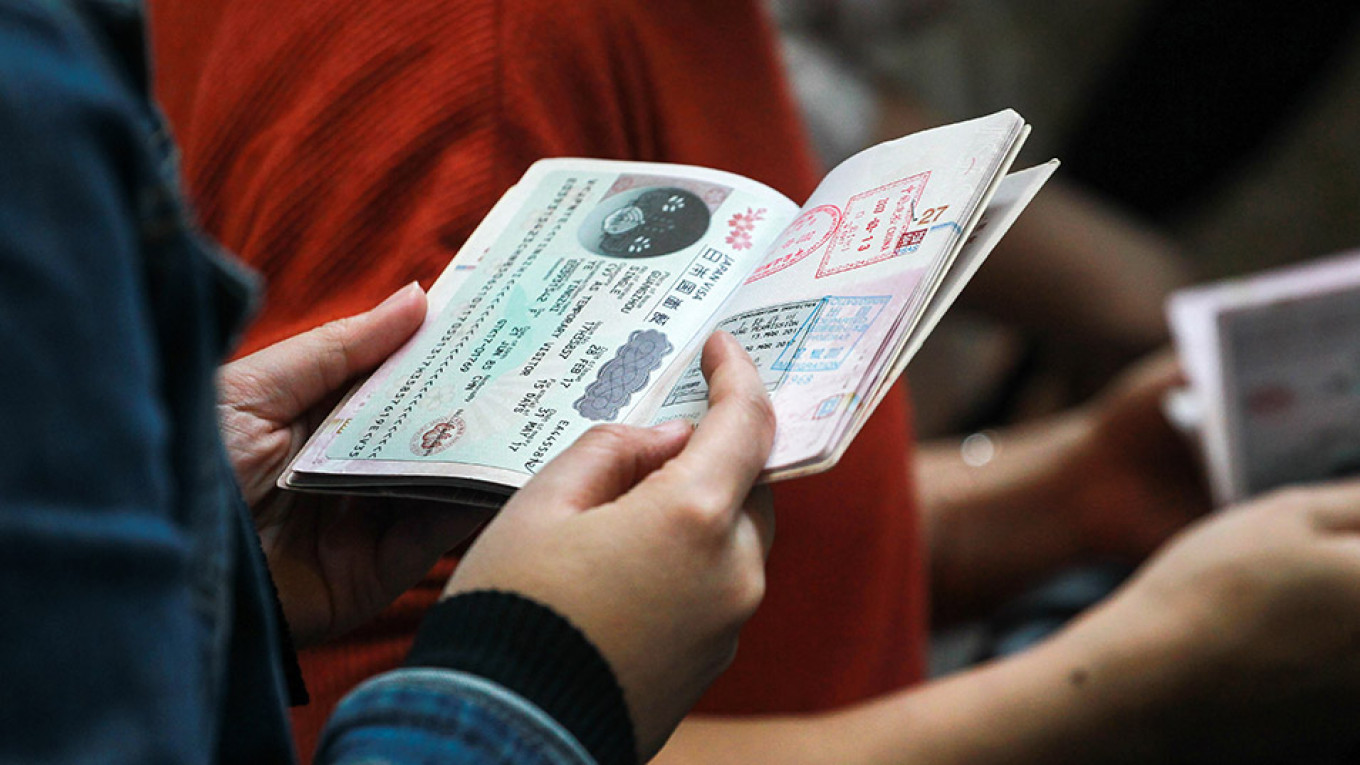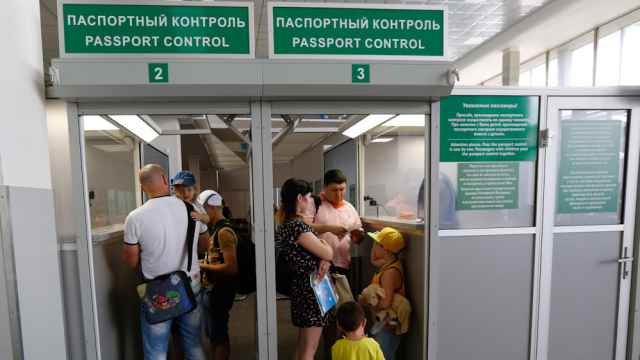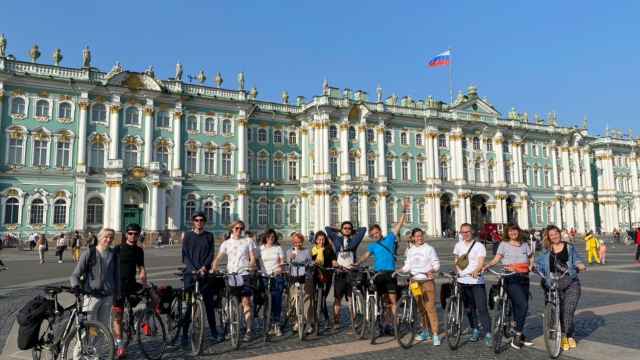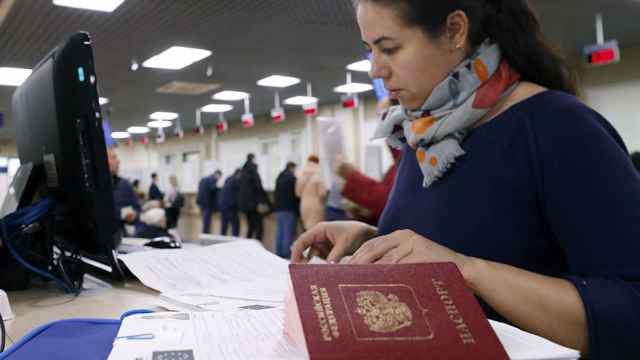Tourists and businesspeople from 53 countries will be able to visit St. Petersburg on a simplified electronic visa starting this fall under President Vladimir Putin’s new orders.
Putin has promised to offer e-visas to foreign visitors in 2021 as he vies to collect $15.5 billion in annual tourism revenue by the end of his presidential term in 2024. Tourists around the world have frequently cited difficulties with obtaining visas as a barrier to visiting Russia.
The 30-day e-visa program will go into effect in St. Petersburg and the surrounding Leningrad region starting Oct. 1, according to a presidential decree published Friday.
Visitors will be able to stay in Russia for eight days out of the 30-day validity period.
Potential tourists are directed to apply for electronic visas on the Russian Foreign Ministry website no later than four days before their arrival, the decree states. Applicants will not be charged a consular fee.
The offer will be open to citizens from 53 different countries, including Bahrain, India, Indonesia, Iran, Qatar, China, North Korea, Kuwait, Malaysia, Mexico, Oman, Saudi Arabia, Serbia, Singapore, Turkey, the Philippines, Japan, as well as all EU member states other than the United Kingdom.
The move is expected to attract 12 million tourists each year, up from the 8.2 million who visited St. Petersburg last year, a senior tourism official in the administration told Interfax.
Since 2017, passport holders from 18 countries have been able to obtain free single-entry e-visas to visit Russia’s Far East Federal District. Beginning July 1, the e-visa offer was expanded to travelers visiting the country’s Western exclave of Kaliningrad.
Russia offered visa-free entry to foreign fans visiting the country for the 2018 FIFA World Cup with its Fan ID program, resulting in a 10% tourism boost that year.
This article was updated on Sep. 16 to include information about the list of 53 countries on the list.
A Message from The Moscow Times:
Dear readers,
We are facing unprecedented challenges. Russia's Prosecutor General's Office has designated The Moscow Times as an "undesirable" organization, criminalizing our work and putting our staff at risk of prosecution. This follows our earlier unjust labeling as a "foreign agent."
These actions are direct attempts to silence independent journalism in Russia. The authorities claim our work "discredits the decisions of the Russian leadership." We see things differently: we strive to provide accurate, unbiased reporting on Russia.
We, the journalists of The Moscow Times, refuse to be silenced. But to continue our work, we need your help.
Your support, no matter how small, makes a world of difference. If you can, please support us monthly starting from just $2. It's quick to set up, and every contribution makes a significant impact.
By supporting The Moscow Times, you're defending open, independent journalism in the face of repression. Thank you for standing with us.
Remind me later.






